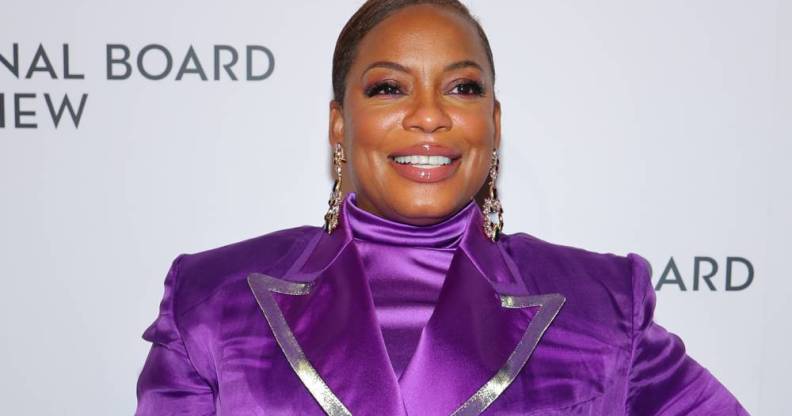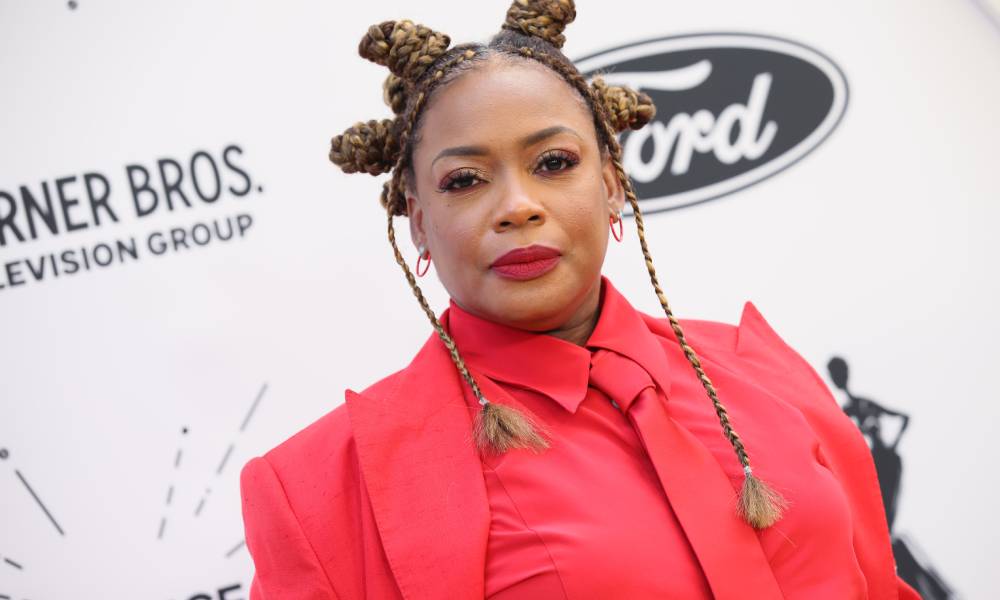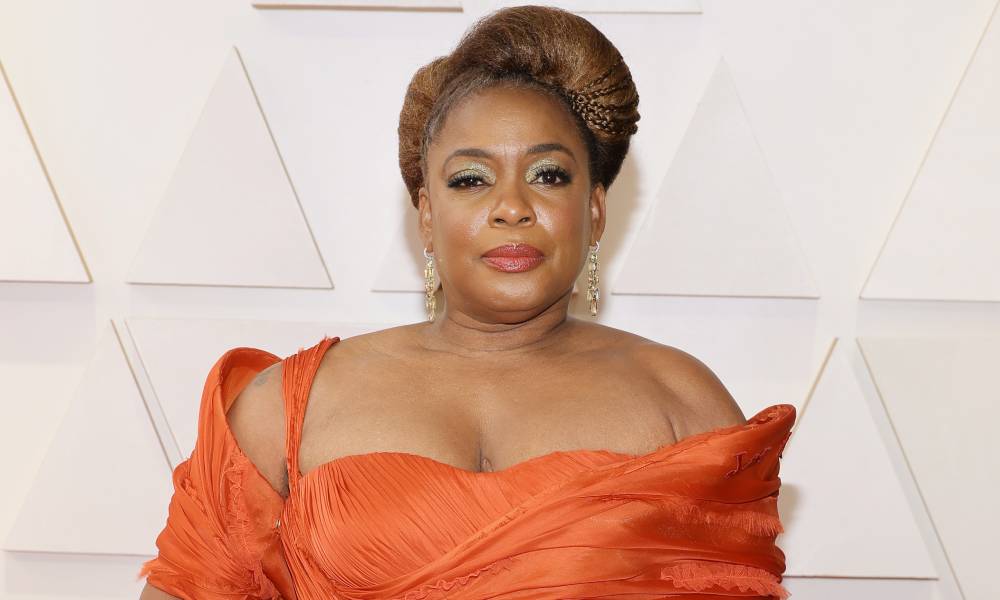King Richard star Aunjanue Ellis comes out as bisexual

Aunjanue Ellis, who was nominated for an Oscar for her role in King Richard, has come out publicly as bisexual. (Getty/Mike Coppola)
King Richard‘s Aunjanue Ellis has opened up about being bisexual and finally being acknowledged as part of the LGBTQ+ community.
Ellis earned an Oscar nomination for Best Supporting Actress for her role as Oracene ‘Brandy’ Williams, the mother and tennis coach of Venus and Serena Williams, in King Richard. She narrowly lost the award to Ariana DeBose – who made history as the first openly queer woman of colour to win an Oscar.
Ellis told Variety that she has been open about her sexuality for decades, but she pointed out that she never discussed her personal life in the media because “nobody asked”.
The Lovecraft Country star recalled accepting her honours at the Essence Black Women in Hollywood Awards in the March with the word “queer” spelt out in rhinestones on the arm of her red Dolce & Gabbana suit jacket. But nobody on the press line or inside the event ever questioned her about it.
“I was thinking, ‘Why didn’t more people pay attention to that?’ And I was like, they probably thought it said ‘Queen’,” she said.
“It wasn’t that I was expecting any sort of major reaction or anything like that. One of my family members noticed, but nobody else did.”

Aunjanue Ellis literally wore her queer identity on her sleeve while attending the Essence Black Women in Hollywood Awards. (David Livingston/FilmMagic)
The Mississippi native shared that she realised she was bisexual when she was eight years old and growing up in a religious family in the Bible Belt of the US.
She remembered trying to train herself to be attracted to boys and attempting to “talk my body into correct behaviour” as a teen.
“The solitude of that is so lonely, it’s violent,” she said. “It’s violent because you literally have to tuck and place so many parts of you to be acceptable, so people won’t run from you and don’t want to be around you.”
She continued: “It was exhausting. That’s what childhood was like.
“That’s what adolescence was like. I knew [my sexuality], but there was no template for it; there was no example of it; there was no place for it, and certainly no forgiveness for it.”
Aunjanue Ellis revealed that she fully acknowledged her bisexuality in her 30s, adding she’s still a “work in progress”.
While she’s been open about her queer identity to family members for years, she said her family expressed that they were “hurt” by her choice to come out publicly and live as her authentic self. She added that, like herself, her family and community are also “works in progress”.
“If they come to New York and they are around all my gay friends, they’re like, ‘Oh we’re cool’,” Ellis said. “But don’t bring it to the house. Don’t be open with it.”

Aunjanue Ellis says her family were “hurt” by her decision to come out publicly as bisexual. (Getty/Mike Coppola)
Ellis also spoke about why people often didn’t recognise her as part of the LGBTQ+ community.
“There is an assumption made of me — a presumption made of me. Is it because I’m a Black woman from Mississippi? Is it because I’m older?” she mused.
“I don’t know what the mechanics are that goes into them not processing, or them not just being able to believe that in the same way I am Black, I am queer. This is who I am.”
Aunjanue Ellis added that her mission as a prominent actor in the entertainment industry is to make Black women proud.
“I want to speak for them and to them in ways where they feel honoured, where they feel that I’m doing and saying something that reflects their hopes, their dreams, their fears, their aspirations,” she said.
She explained that her current focus is on expanding the range of LGBTQ+ representation as she said there “aren’t a lot of novels about Black queer women”.
Ellis said there are characters, but the “full of experience of a Black woman being gay or bisexual” just “doesn’t exist”. So she said people have “got to write it into existence”.

